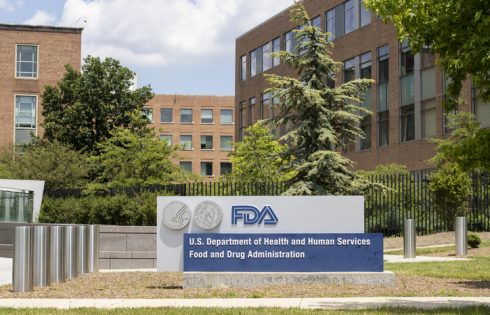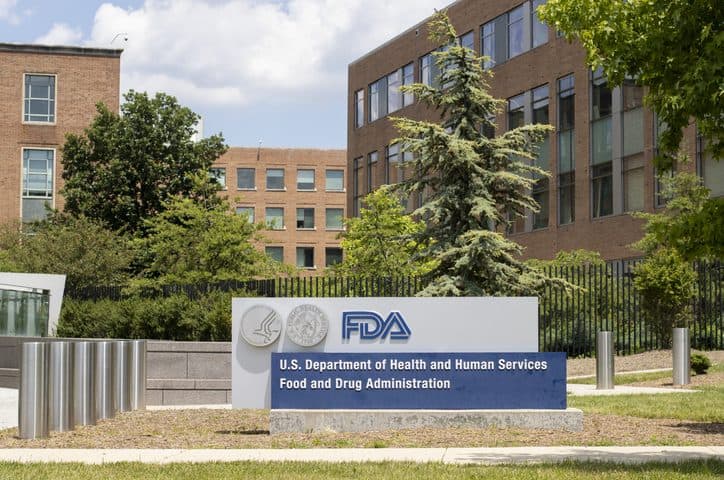
The sudden but not altogether surprising departure of Peter Marks, MD, from the FDA has prompted a chorus of criticism and despair from industry leaders and trade organizations. For the past nine years, Marks served as the director of the FDA’s Center for Biologics Evaluation and Research (CBER), overseeing the approval of 22 gene therapies.
Marks tendered his resignation (effective April 5) “with a heavy heart” in a two-page letter dated March 28 to acting FDA commissioner Sara Brenner, MD, which sharply criticized the anti-vaccine policies of Robert F. Kennedy Jr., the recently appointed Secretary for the Department of Health and Human Services (HHS).
The Associated Press reported that Marks was told to resign or be fired.
Among Marks’ accomplishments was the leading role he played during Operation Warp Speed, the successful rapid deployment of RNA vaccines for the COVID-19 pandemic in 2020 during the first Trump administration. Marks also received high praise from leaders in the cell and gene therapy field and spoke frequently about the need for regulatory reform to take full advantage of the safety, effectiveness, and programmability of new technologies including CRISPR genome editing.
On social media, Ashish Jha, MD, dean of the Brown University School of Public Health, called Marks “one of the most brilliant, dedicated scientists and public servants [who] helped usher in scientific rigor and transparency into the FDA.” His departure would make the FDA “dramatically weaker, less effective. This is not how we make America healthy.”
“This is very bad for biotech at FDA,” was how Scripps Research Translational Institute director Eric Topol, MD, reacted.
“Heavy heart”
Marks’ resignation letter did not mince words:
“Efforts currently being advanced by some on the adverse health effects of vaccination are concerning,” Marks wrote. “The history of the potential individual and societal benefits of vaccination is as old as our great nation.” From George Washington protecting troops against smallpox in the late 18th century to the polio vaccine to the recent measles outbreak in New Mexico and Texas, Marks emphasized the importance of established science. “Undermining confidence in well-established vaccines… is irresponsible, detrimental to public health, and a clear danger to our nation’s health, safety, and security.”
Marks continued: “I was willing to work to address the [HHS] Secretary’s concerns regarding vaccine safety and transparency… However, it has become clear that truth and transparency are not desired by the Secretary, but rather he wishes subservient confirmation of his misinformation and lies.
“My hope is that during the coming years, the unprecedented assault on scientific truth that has adversely impacted public health in our nation comes to an end so that [Americans] can fully benefit from the breadth of advances in medical science.”
Trading blows
Two of the major biopharma trade organizations rapidly issued statements bemoaning the loss of Marks from the FDA.
The Biotechnology Information Organization (BIO) said that under Marks’ “extraordinary leadership,” the FDA “shepherded in a new era of scientific breakthroughs—from new vaccines to curative cell and gene therapies that have strengthened and saved the lives of millions of patients and families.
“The U.S. has long been recognized as the world leader in medical and scientific innovation and regulation, grounded in transparency and scientific rigor. We are deeply concerned that the loss of experienced leadership at the FDA will erode scientific standards and broadly impact the development of new, transformative therapies to fight diseases for the American people… We are committed to working with the new Commissioner and the Administration to support and enable a strengthened and modernized FDA.”
The Alliance of Regenerative Medicine (ARM), led by CEO Tim Hunt, called Marks “a visionary leader, advocate for rare disease patients and champion of cell and gene therapy… [he] will be missed.”
ARM added: “As the [Trump] Administration and FDA consider resource allocation and restructuring decisions, we strongly encourage leaders to build on recent reform and modernization efforts and enable a culture that attracts, retains, and develops top scientific talent.”
Former FDA commissioner Robert Califf, MD, posted that what Marks wrote in his resignation letter “should be frightening to anyone committed to the importance of evidence to guide policies and patent decisions.”
Risky business
As recently as late 2024, Marks had stated his intention to stay on at the agency, despite the imminent change of leadership. In a November 2024 fireside chat with Jefferies equity analyst Akash Tewari, Marks said he expected to stay, hoping that the second Trump administration “would be amenable to the concept of accelerated approvals given initiatives around government efficiency and a desire to lean into the development of medical products.”
As Jefferies analyst Michael J. Yee wrote at the time: “While acknowledging uncertainty and that he can’t fully predict workforce impacts, [Marks’] belief is that the vast majority at FDA generally have very strong relationships with their management and leadership and a commitment to unmet needs and rare diseases, which wouldn’t change under a new [administration].”
Reacting to Marks’ resignation, Yee observed that Marks’ exit from the FDA “was always a risk” given his leadership in Operation Warp Speed—as well as the recent departures of other key FDA administrators, notably Patrizia Cavazzoni, MD, the former Director of FDA’s Center for Drug Evaluation and Research (CDER), who has joined Pfizer as its chief medical officer.
“We now see heightened risk to rare disease [companies] planning to file on surrogate endpoint data who have benefited from [Marks’] push for more [accelerated approvals],” Yee wrote. He added that many rare disease drug developers have seen their stock prices fall by >20% year-to-date, given heightened fears about Marks’ likely exit and the future of FDA regulatory flexibility.
“Despite Marks’ departure, we still think FDA commissioner Marty Makary, MD, is supportive of conditional approvals for rare disease,” Yee added, noting that FDA reviewers of new drug and biologics applications had been exempted from recent buyout offers and HHS jobs cuts. “Drugs are still being approved on schedule,” he wrote, but there is potential for further market losses following the news, especially for rare disease companies.
A look back
In early 2024, Marks was one of the guests on the GEN virtual summit, “The State of Cell and Gene Therapy.” (The summit is free to watch on demand; an edited transcript was published in GEN’s sister peer-reviewed journal, GEN Biotechnology.)
In that interview, Marks spoke about a variety of initiatives, from manufacturing to streamlining new drug submissions to expediting the development of cell and gene therapies. He also referenced the START program, building on learnings from Operation Warp Speed. A hematologist/oncologist by training, Marks said he was excited by the “breathtaking science” that led to the FDA approving Casgevy, the first CRISPR therapy, in December 2023.
At the end of that interview, Marks was asked if he was interested in succeeding Califf as the FDA commissioner in the new administration. Marks responded: “No, I am very happy doing what I am doing in the area of cell and gene therapy, vaccines, and blood products at our center,” Marks replied. “I am nonpolitical… and am inspired on a daily basis by our opportunity to really make a difference by facilitating the development of a very exciting set of products.”
Nonpolitical notwithstanding, Marks is out, leaving big shoes to fill.

